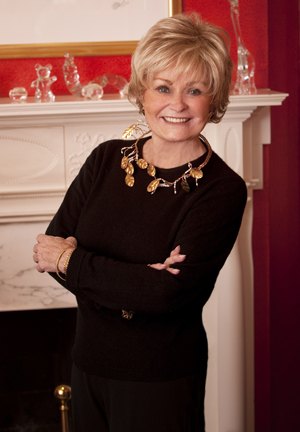February 25th, 2025
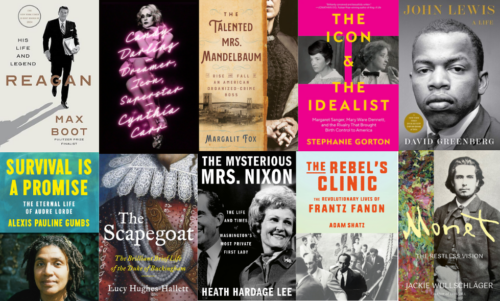
The 2025 Plutarch Award longlist has been decided. This year’s award committee consists of BIO members Ruth Franklin (chair), Vanda Krefft, Lance Richardson, David Maraniss, and Lisa Napoli.
“The 2025 Plutarch Committee reviewed close to 150 books by first-time and experienced biographers, issued by major presses and small academic publishers, on subjects who made their lives in worlds as different as ancient Rome and modern-day Hollywood,” says Franklin. “Many took the traditional cradle-to-grave approach; a few left us debating whether they should even be called biographies. According to the standards set by earlier committees, we looked for a balance of rigorous research, irresistible writing, and original ideas. Some of these books have already appeared on many other ‘top ten’ and ‘best of’ lists; we’re excited to bring attention to others that will likely be new to you. All of them opened up new worlds to us or offered new perspectives on the familiar.”
The titles, listed in alphabetical order by authors’ last names, are as follows:
Max Boot, Reagan: His Life and Legend (Liveright)
Political columnist Max Boot interviewed over 100 of Reagan’s aides, friends, and family members, and researched thousands of newly available documents to write what critics call “the best biography of Ronald Reagan to date.” Boot contextualizes Reagan’s life and provides a nuanced look at the 40th president.
Cynthia Carr, Candy Darling: Dreamer, Icon, Superstar (Farrar, Straus and Giroux)
Cynthia Carr puts Candy Darling, a transgender icon and Warhol film star, back into the spotlight in this meticulously researched biography. Candy Darling died at the young age of 29, in 1974, a time in which conversations about gender identity were just beginning.
Margalit Fox, The Talented Mrs. Mandelbaum: The Rise and Fall of an American Organized-Crime Boss (Random House)
Fredericka Mandelbaum’s rise from tenement poverty to vast wealth in Gilded Age New York City was not a simple rags-to-riches tale. Margalit Fox’s well-researched and flamboyantly told biography captures the fascinating story of a woman who rose through the ranks of New York City society by becoming a criminal mastermind.
Stephanie Gorton, The Icon & the Idealist: Margaret Sanger, Mary Ware Dennett, and the Rivalry That Brought Birth Control to America (HarperCollins)
Stephanie Gorton provides a richly researched and bold perspective on the clash between two women—Margaret Sanger and Mary Ware Dennett—whose activism led the way to the modern discourse over women’s reproductive freedoms. Gorton weaves details of how race, class, and gender, as well as the Great Depression and the eugenics agenda impacted the fight for bodily autonomy and access to birth control into this portrait of rivals whose work affected generations to come.
David Greenberg, John Lewis: A Life (Simon & Schuster)
Most people know of John Lewis’s work in the civil rights movement, but David Greenberg’s biography goes beyond this, covering Lewis’s rise into politics, his work as a voting rights activist, and his dedication to nonviolence and justice. Greenberg uses sources ranging from archives to interviews with almost 300 people, as well as footage of Lewis speaking from his hospital bed in Selma to create a fully dimensional picture of this icon of civil rights and freedom.
Alexis Pauline Gumbs, Survival Is A Promise: The Eternal Life of Audre Lorde (Macmillan)
Alexis Pauline Gumbs is the first researcher to fully explore the depths of Audre Lorde’s manuscript archives. As a result, she has written a biography that captures Lorde’s teachings, creativity, resilience, and her deep engagement with the planet itself in a way that does justice to this force of poetic nature.
Lucy Hughes-Hallet, The Scapegoat: The Brilliant Brief Life of the Duke of Buckingham (Harper)
In a biography that reads much like a novel, Lucy Hughes-Hallet explores the world of the Duke of Buckingham, James I’s confidant, advisor, and lover, and the dynamic world of early modern England.
Heath Hardage Lee, The Mysterious Mrs. Nixon: The Life and Times of Washington’s Most Private First Lady (Macmillan)
Heath Hardage Lee shows the elusive Pat Nixon as few have seen her. While the press portrayed this First Lady as elusive and “plastic,” Nixon did important work for humanitarianism, equal rights, and political policy. This biography portrays a woman that deserved her accolade as the “Most Admired Woman in the World.”
Adam Shatz, The Rebel’s Clinic: The Revolutionary Lives of Frantz Fanon (Macmillan)
This is the thrilling story of Frantz Fanon, the intellectual activist who wrote revolutionary works about race and the psychology of power. His work challenged white supremacy and racial capitalism and still resonates today.
Jackie Wullschläger, Monet: The Restless Vision (Penguin Random House)
Drawing on thousands of letters and unpublished resources, Jackie Wullschläger reveals a new perspective on the life of one of the most important painters of the 19th century, Claude Monet. The author shows how his tumultuous love life impacted his painting and gives readers a new understanding of Monet’s work as well as his life.
The winner will be announced during the 2025 BIO Conference, occurring June 5 and 6 at The National Press Club in Washington, D.C.
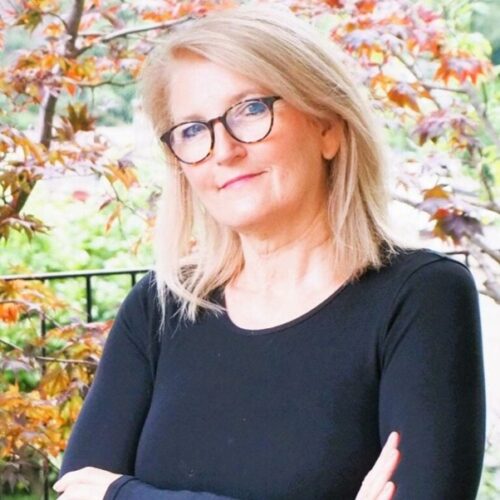 Valerie Waterhouse has been named the recipient of the inaugural Kitty Kelley Dissertation Fellowship for her research on Malachi Whitaker (1895–1976), a British working-class writer known for her short stories and memoir.
Valerie Waterhouse has been named the recipient of the inaugural Kitty Kelley Dissertation Fellowship for her research on Malachi Whitaker (1895–1976), a British working-class writer known for her short stories and memoir.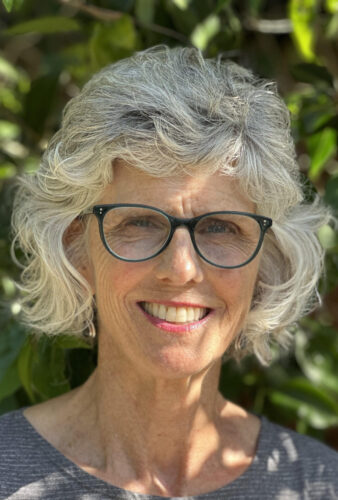 The 2025 Hazel Rowley Prize, honoring the best book proposal by a first-time biographer, has been awarded to Liz Schott, who is working on a biography of Dorothy Wright Liebes. Liebes was renowned for textile design, color artistry, and experimentation with innovative fibers from the mid-1930s until her death in 1972. She dominated women’s magazines, was featured in newsreels, television, and radio programs, and created the “Liebes Look,” a modern aesthetic we still embrace without even knowing her name.
The 2025 Hazel Rowley Prize, honoring the best book proposal by a first-time biographer, has been awarded to Liz Schott, who is working on a biography of Dorothy Wright Liebes. Liebes was renowned for textile design, color artistry, and experimentation with innovative fibers from the mid-1930s until her death in 1972. She dominated women’s magazines, was featured in newsreels, television, and radio programs, and created the “Liebes Look,” a modern aesthetic we still embrace without even knowing her name.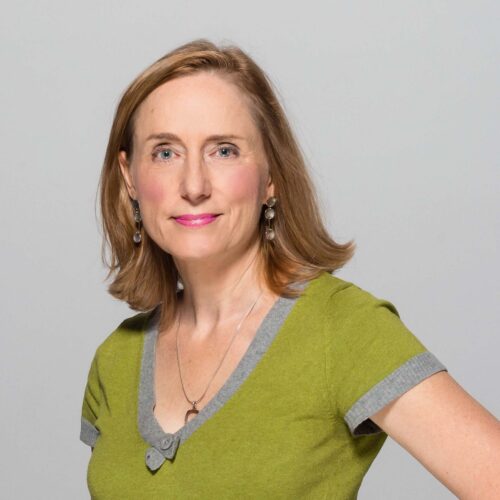
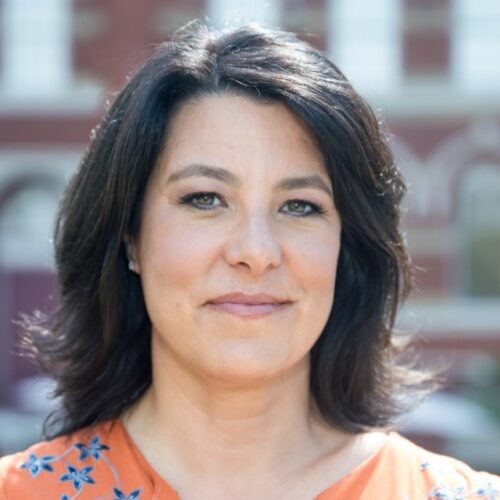
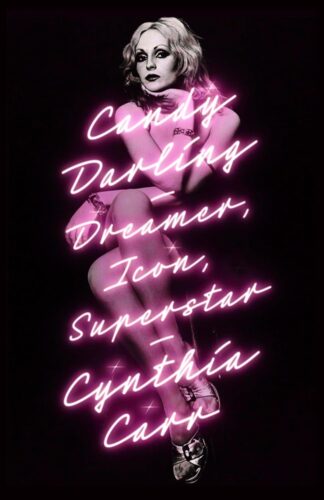
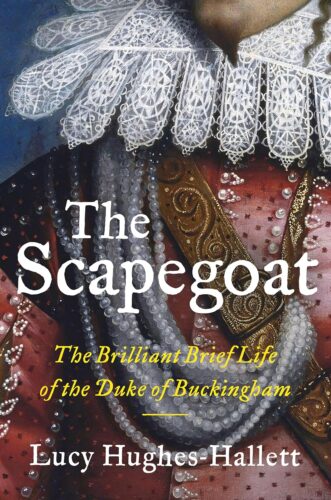
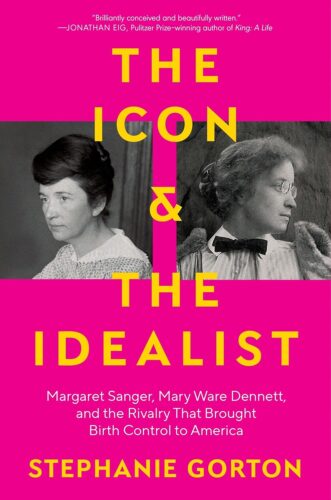 The Icon and the Idealist: Margaret Sanger, Mary Ware Dennett, and the Rivalry That Brought Birth Control to America by Stephanie Gorton
The Icon and the Idealist: Margaret Sanger, Mary Ware Dennett, and the Rivalry That Brought Birth Control to America by Stephanie Gorton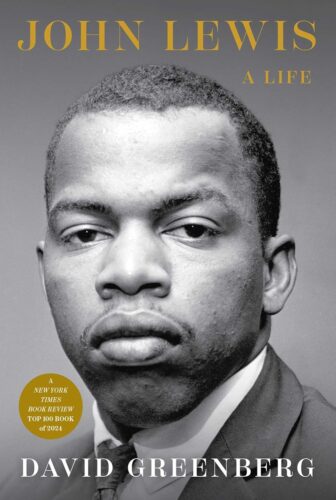 John Lewis: A Life by David Greenberg
John Lewis: A Life by David Greenberg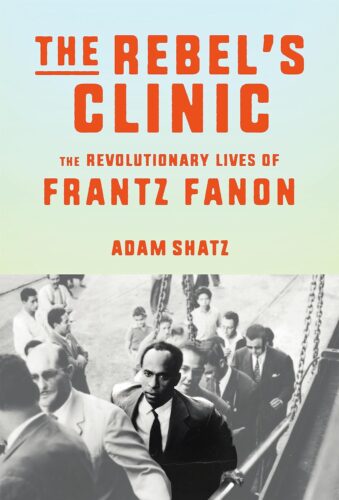 The Rebel’s Clinic: The Revolutionary Lives of Frantz Fanon by Adam Shatz
The Rebel’s Clinic: The Revolutionary Lives of Frantz Fanon by Adam Shatz
